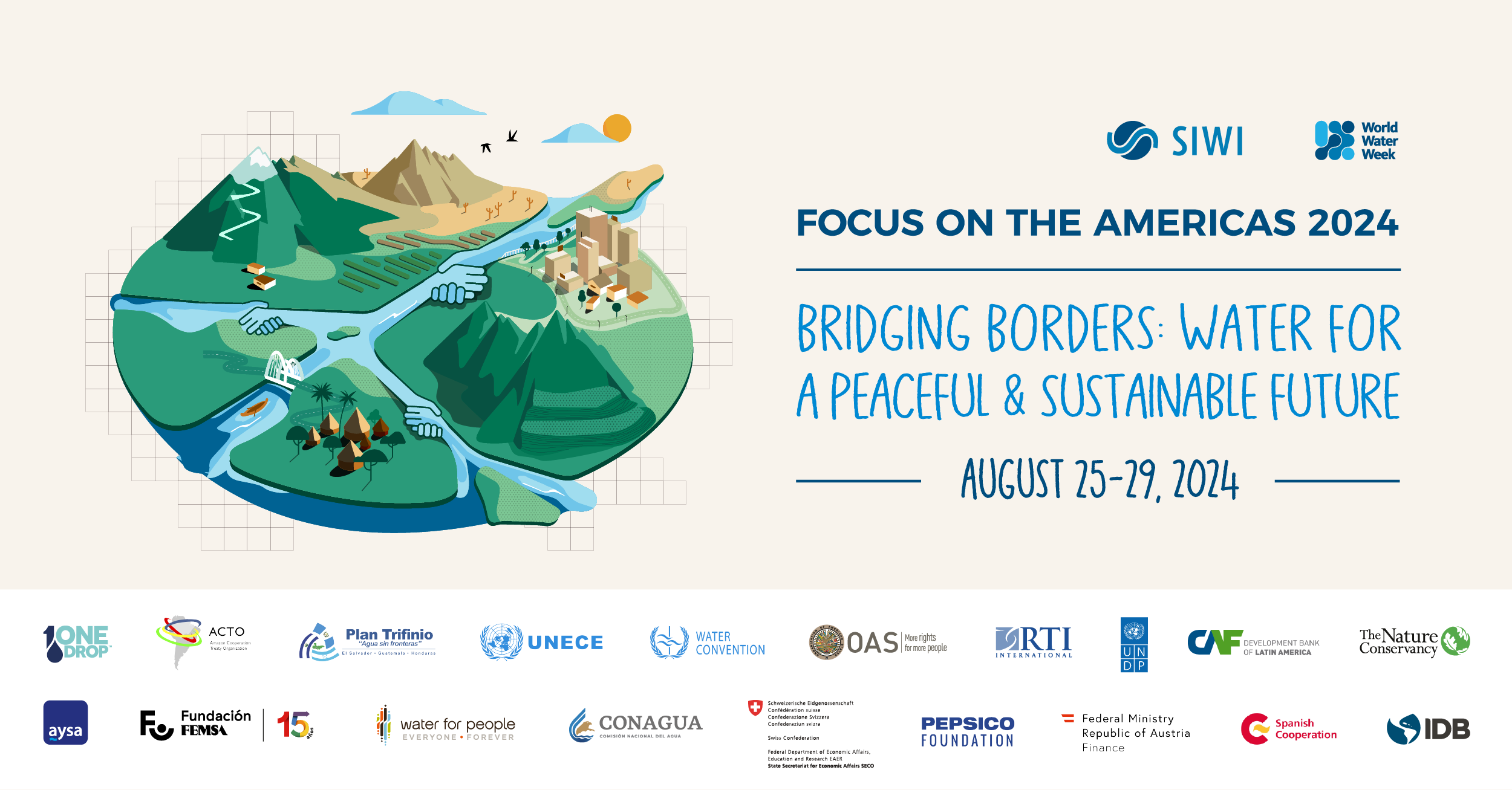By Tomás Serebrisky, Manager, Infrastructure and Energy.
Historically, rivers and bodies of water were used as territorial demarcations, separating countries, regions and other divisions imagined by humans. However, water, by its very nature, flows tirelessly along its course, leaving a trail of progress. It can connect populations, link destinations and, on occasion, trigger natural disasters. Knowing how to manage our transboundary waters is therefore a transcendental issue for the sustainable, resilient and inclusive development of Latin America and the Caribbean.
Seventy-one percent of the region’s water resources are found in transboundary basins, including the Amazon River, the largest freshwater reserve in the world, and the Guarani aquifer. Amidst the global climate crisis, rapid socioeconomic development and urbanization, water security is one of the main challenges for our region’s development.
Regional cooperation in water management is still under development, with few treaties and agreements implemented and executed between countries. The Stockholm International Water Institute’s World Water Week – which will be held this August 25-29 in Stockholm, Sweden- will highlight this theme.
The IDBImpact+ strategy seeks transformative and sustainable progress in the region, especially through sustainable, efficient and inclusive infrastructure services. It is aligned with the theme of World Water Week, which focuses on finding solutions, agreements, financing and new technologies for the management of transboundary basins in the Americas.
During this conference, the organizing committee of the Focus of the Americas program, coordinated by the Water and Sanitation Division of the IDB, has identified five thematic axes that will be explored through hybrid and open sessions:
- Bridging divides: A new era for transboundary watershed management. This session will focus on the opportunities and challenges for strengthening regional coordination and effective transboundary water management for healthier and more resilient watersheds in the Americas. Experts will explore how source-based water management, stakeholder participation, behavior change, and resilient water allocation goals can contribute to more effective transboundary action.
- Hydro-diplomacy for shared water resources. This session will focus on collaborative actions for sustainable water resource management. The discussion will focus on success stories, challenges, and emphasize the need for strong institutions, legal frameworks, and knowledge sharing to strengthen effective hydro-diplomacy.
- Sustainable financing for transboundary water cooperation. This session will examine the challenges and opportunities for resource mobilization to support countries and decision makers towards cooperation in transboundary basins.
- Science and technology: Advancing cooperation in transboundary waters. This session will explore innovative strategies in transboundary watershed management in the region, focusing on science, technology, and cooperation to address current challenges.
- Embracing diversity: Voices in transboundary watershed cooperation. This session will delve into the perspectives and experiences of diverse and indigenous communities within transboundary areas. A panel will encourage dialogue on how these communities are impacted and how they can collaborate. The goal is to amplify these voices and understand the complexities of transboundary cooperation.
In addition, three seminars on “Managing Shared Water Resources for Peace and Cooperation” will be held during World Water Week. We will feature a live conversation and direct connections with our speakers on the IDB’s social media. Explore our full and exciting agenda, with a special focus on transboundary watersheds for a more connected and participatory region.
The Focus on the Americas program of the Stockholm International Water Institute’s World Water Week 2024 is organized by a consortium of committed institutions, which year after year develop an attractive agenda to address relevant water issues in Latin America and the Caribbean.


Leave a Reply